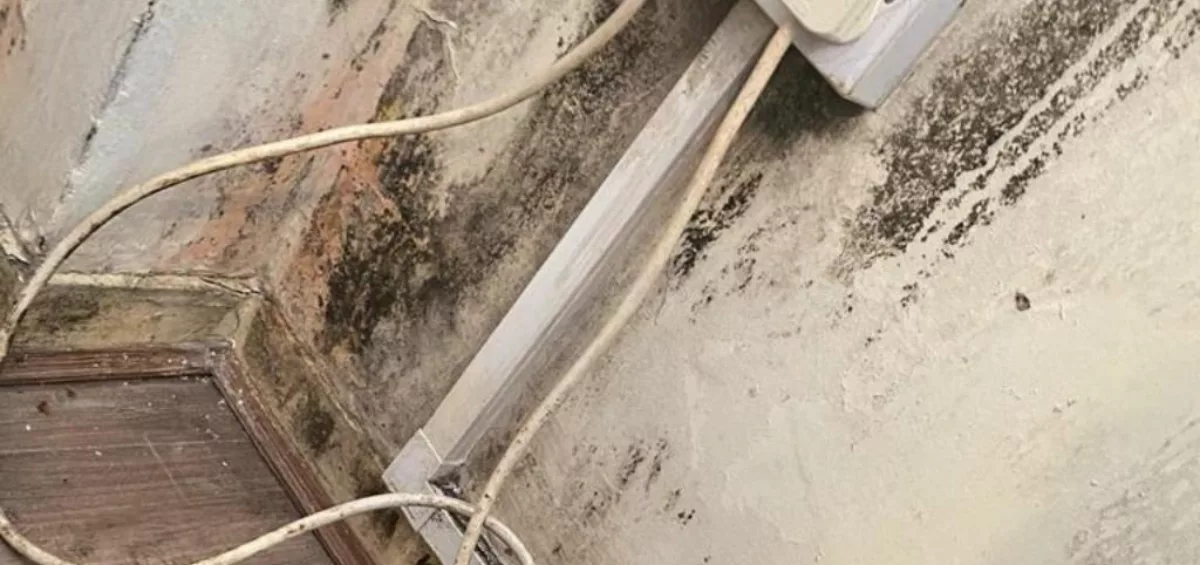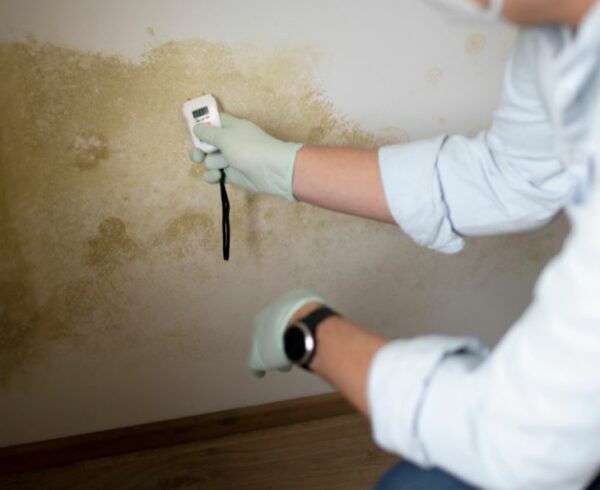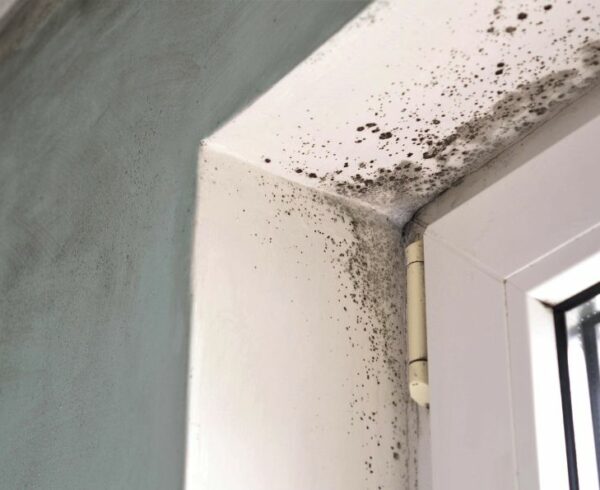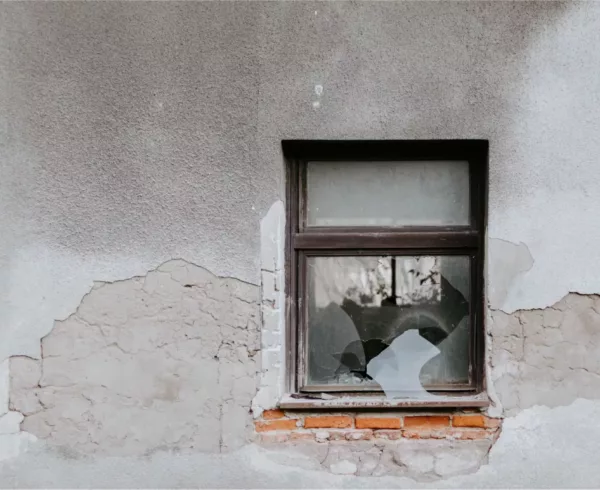CEL Solicitors has helped a fifty-one-year-old grandmother suffering from black mould, condensation, rotting window frames, and cracking in plasterwork – plus a heating system not fit for purpose – for seven years!
Millie Birmingham describes her three-bedroom social housing flat as “like an igloo” due to the housing disrepair and claims her son, 17, who has special needs, often refuses to sleep in his own bedroom due to the damp and smell.
Her 29-year-old daughter shares her mould-infested room with her own daughter, five, and is expecting another child in August.
A stay-at-home carer for her son, Miss Birmingham says they suffer from frequent colds and she’s worried that the appalling conditions are damaging her family’s longer-term health.
She said: “At its worst, in my daughter’s bedroom – where she sleeps with her young child – there is black mould all over the windows, on the walls in the corner and behind the cupboards.
“My son’s room has black mould on the walls and the smell is awful. Very often he doesn’t want to sleep in there and had to come in with me instead. It’s not right that a boy that age doesn’t have a suitable bedroom.”
Miss Birmingham moved into the second-floor flat in Pimlico in February 2010, but four years later the housing disrepair issues started to materialise.
Damp patches began to form on the walls, especially behind pictures and cupboards, and she was forced to use bleach and hot water to try to get rid of it.
“However much I cleaned it up, the damp patches kept coming back,” she said. “The windows are single glazed and the frames were rotting because the condensation was so bad.
“During the winter it was like an igloo – you could see your breath. It was like being back in the 1980s.
“My son has special needs but his room is the coldest in the flat. It’s like an ice box.”
Miss Birmingham contacted the council who told her to move the furniture away from the walls to allow air to circulate, but it didn’t stop the damp.
They then told her to leave the windows open to let the air circulate. She says this simply wasn’t practical.
“My flat does not have anyone living on either side – it’s the stairs on one side and the outer walls on the others, so it’s cold anyway,” she said.
“The walls are cold and the heat just disappears straight out of the window. Whatever I do, I am constantly wiping down the windows and three hours later there is condensation there again.”
She says the central heating used to switch off at 10pm, leaving the flat “freezing cold” and making night-time trips to the toilet a truly unpleasant experience.
It now runs 24 hours a day but her flat does not have thermostats to control it.
Miss Birmingham’s son is one of her main concerns. He suffers from global development delay, epilepsy and cardiomegaly, or an enlarged heart.
She added: “In the past five years he has suffered twice with pericarditis (swelling of the tissue surrounding the heart).
“I told the council this and they said they would send someone round and in the meantime we should use bleach and water. It’s very frustrating.”
A MyLondon article with CEL Solicitors on the subject of tenants forced to live in unsuitable housing.
Making a housing disrepair claim
After battling the situation for years, Miss Birmingham finally made progress when she contacted the CEL Solicitors housing disrepair team to take her claim to court.
Our specialists were successfully able to win her compensation of £2,500 and Westminster Community Homes – the body responsible for her flat – have finally agreed to carry out the repairs.
She said: “I can’t decorate because the mould continues to come back through the walls. It doesn’t give me the ambition to do anything with it.
“The kitchen and front room have cracks in the ceiling and around three years ago we had to have a bucket to catch the water leaking in from upstairs. I’m really not sure how much more of this we can take.”
John Lowry, director and head of the housing disrepair team at CEL Solicitors, said: “Laws are in place to ensure everyone lives in a property that is safe and in good condition.
“Millie’s case shows that this is often not the case and it is an experience shared by thousands of people across the country.
“For her to have to wait seven years before anything looks like being done about it, and even then with the need for solicitors to force the housing association’s hand, is simply not acceptable.”












